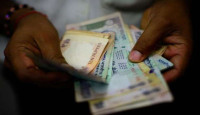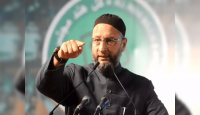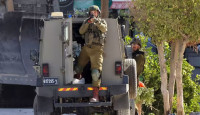Israel and Hezbollah agree on Lebanon ceasefire: What's the terms of the agreement?
.jpg)
Israel has agreed to a US-brokered ceasefire deal with Lebanon's Hezbollah that went into effect from early Wednesday (Israel time). Hezbollah leaders have also expressed preliminary support for the agreement, which can become a way out for both sides in this war.
The deal stipulates the 60-day ceasefire, which dictates that Israeli troops withdraw and Hezbollah demilitarize southern Lebanon.
Lebanon opposed to this provision of right from Israel to act in case Hezbollah violates the deal where Israel has insisted.
The conflict between the two has displaced over 1.2 million Lebanese and 50,000 Israelis. Meanwhile, Israel's heavy bombing campaign has resulted in more than 3,700 deaths, mostly civilians, according to Lebanese officials, while over 130 have been killed on the Israeli side.
Key terms of the deal:
According to the reports, the arrangement mentions a 60-day cessation of hostilities during which the Israeli troops will withdrawal back into their side of the border and Hezbollah troops will pull out of a vast section of southern Lebanon.
The deal comes in force from Wednesday (local time).
Thousands of Lebanese militiamen and UN peacekeepers have been proposed to be despatched to the stretch south of the Litani River under the deal.
An international monitoring group, led by the US, will be tasked with monitoring compliance on all sides. President Biden said that the agreement should ensure a "permanent" end to fighting.
The agreement included a provision giving Israel the right to respond militarily if Hezbollah were to break its commitments, which the Lebanese have opposed.
US and UK view of the deal?
International Related News
US President and UK PM have both hailed the ceasefire deal with Joe Biden calling it a "good news" and Keir Starmer highlighting it that it was "long overdue."
"I just spoke with the prime ministers of Israel and Lebanon and I'm pleased to announce that their governments have accepted the United States' proposal to end the devastating conflict between Israel and Hezbollah," Biden said.
"We need to see an immediate move towards a ceasefire agreement in Gaza, the release of all hostages and the removal of all restrictions on desperately needed humanitarian aid," Starmer said in a statement.
What Hezbollah said about the deal?
A Hezbollah leader said that the group's support for the deal depends on assurances that Israel will not resume its attacks.
After reviewing the agreement signed by the enemy government, we will see if there is a match between what we stated and what was agreed upon by the Lebanese officials," Mahmoud Qamati, deputy chair of Hezbollah's political council, told Al Jazeera.
"We want an end to the aggression, of course, but not at the expense of the sovereignty of the state" of Lebanon, he added.
What does the deal say on Gaza?
The deal does little to address the deadly conflict in Gaza. The war, which started after the Hamas attack on southern Israel in October 2023 that killed 1,200 people, continues to rage on without a direct resolution from the agreement.
Hezbollah had insisted that it will end its attacks on Israel if Israel stops its assaults in Gaza. Some groups within the region may find a settlement between the group from Lebanon and Israel an abdication.
My statement on the ceasefire between Israel and Lebanese Hizbollah. pic.twitter.com/ZAxApKpJIT — Keir Starmer (@Keir_Starmer) November 26, 2024




.jpg)
.jpg)
.jpg)
-(2).jpg)
.png)
.jpg)

-(1).jpg)
.jpg)


.jpg)



.png)




.jpg)




